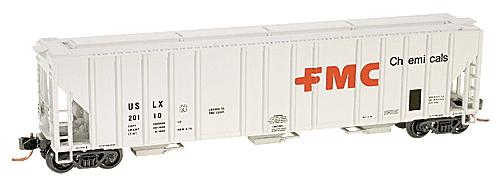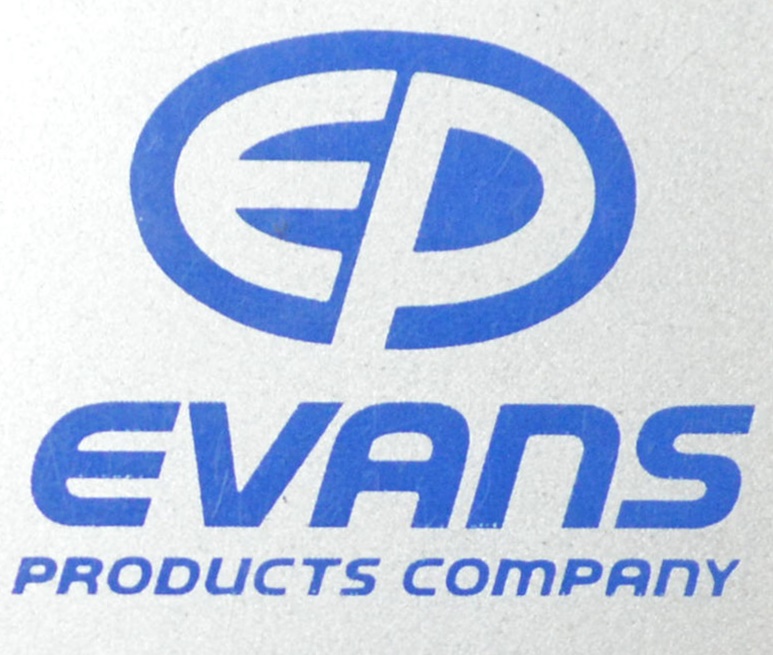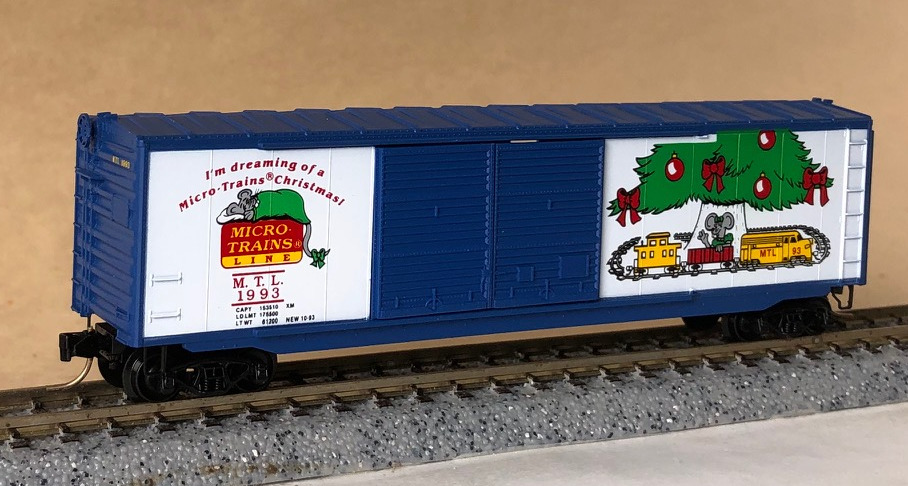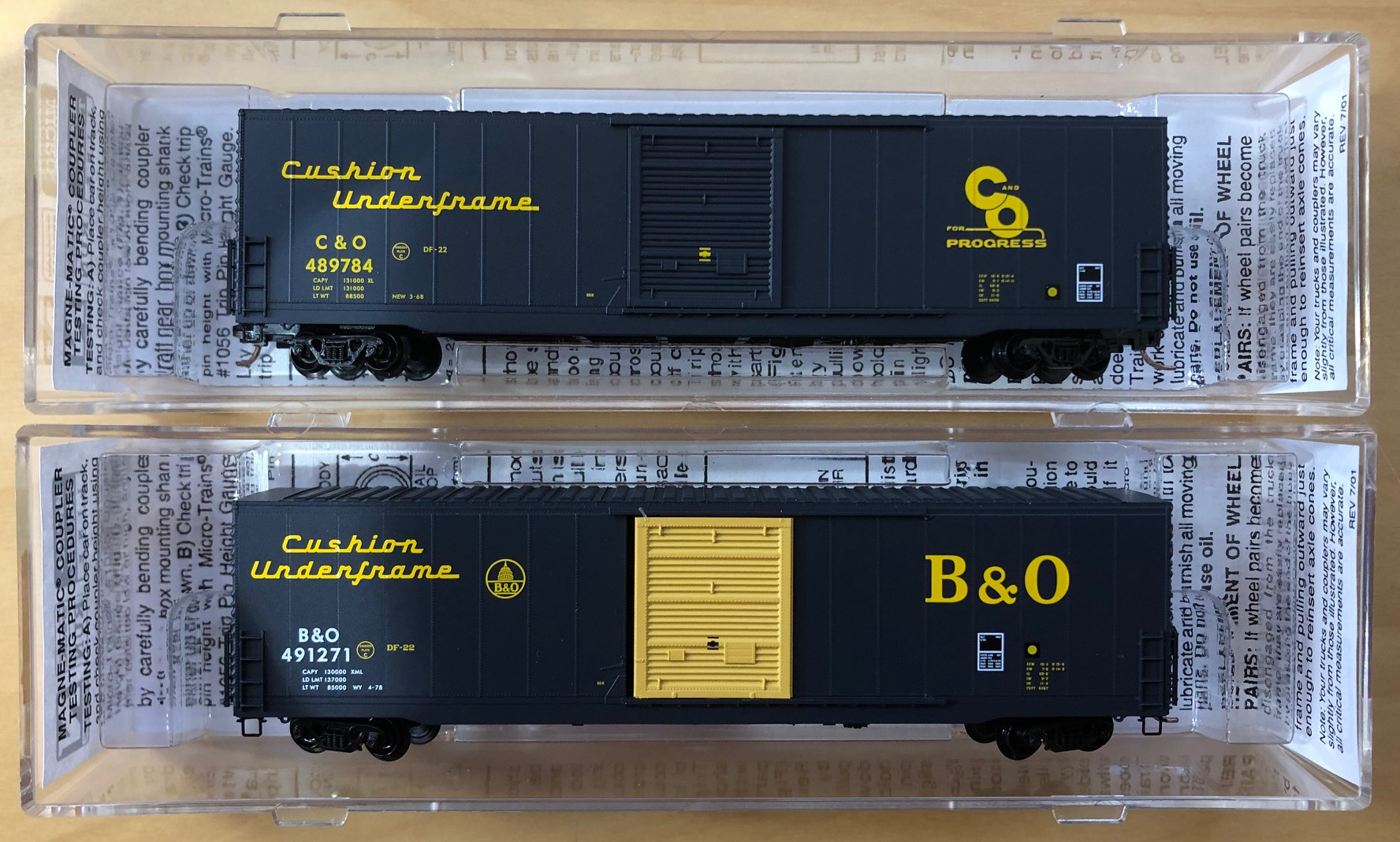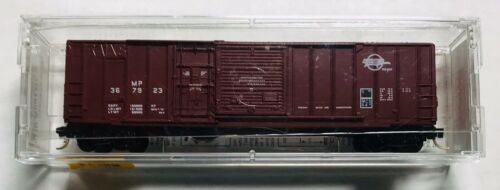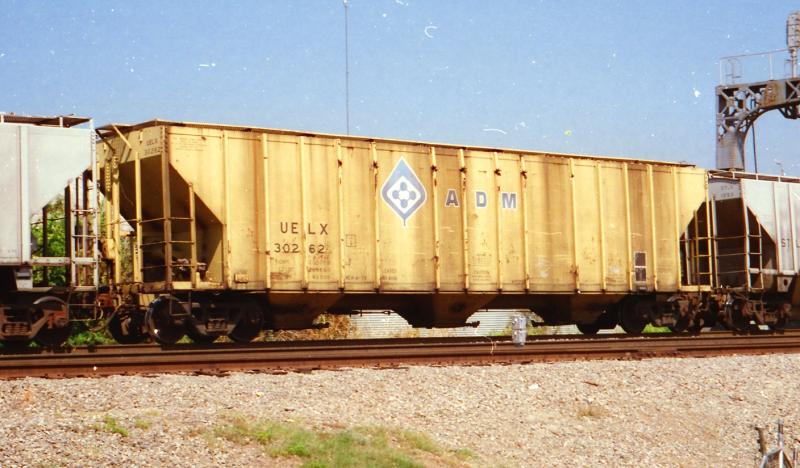Model Information: Micro-Trains first released this model in 2006. It is a model of the Evans three bay covered hopper which was first built in 1966. This tooling has been used to model both Evans 4750 and 4780 prototypes.
Prototype History: Distinguished by its unique Youngstown corrugated roof, the Evans 4780 Covered Hopper is a common prototype with uncommon features. Beginning with the first production order in December of 1976, Evans produced over 4,000 hoppers during the five-year production period. Popular among Nebraska cooperatives and lessees, the Evans 4780 has plied the rails everywhere in North America. Since the late 1970s the 55' Evans 4780 Covered Hopper has been a grain-hauling favorite.
Road Name History: FMC Corporation is an American chemical manufacturing company headquartered in Philadelphia, Pennsylvania. The company was originally founded by chemist John Bean in 1883 as the Bean Spray Pump Company in Los Gatos, California, producing piston pumps for insecticides. In 1928, Bean Spray Pump purchased two companies: the Anderson-Barngrover Co. and Sprague-Sells Co. At this time the company changed its name to Food Machinery Corporation, and began using the initials FMC.
In 1941 the company FMC received a contract to design and build amphibious landing vehicles tracked vehicles for the United States War Department, and afterwards the company continued to diversify its products, including an extensive line of rail cars. The rail car production really kicked into high gear during the 1970s when FMC produced many models to take advantage of the Per Diem rules. Between 1965 and 1985 FMC was the owner of the Gunderson metal works in Springfield, Oregon, during that period it was known as the "Marine and Rail Equipment Division of FMC" (MRED), it was sold in 1985 to The Greenbrier Companies.
FMC employs 7,000 people worldwide, and had gross revenues of US$2.8 billion in 2017
From Wikipedia
In 1941 the company FMC received a contract to design and build amphibious landing vehicles tracked vehicles for the United States War Department, and afterwards the company continued to diversify its products, including an extensive line of rail cars. The rail car production really kicked into high gear during the 1970s when FMC produced many models to take advantage of the Per Diem rules. Between 1965 and 1985 FMC was the owner of the Gunderson metal works in Springfield, Oregon, during that period it was known as the "Marine and Rail Equipment Division of FMC" (MRED), it was sold in 1985 to The Greenbrier Companies.
FMC employs 7,000 people worldwide, and had gross revenues of US$2.8 billion in 2017
From Wikipedia
Brand/Importer Information: Micro-Trains is the brand name used by both Kadee Quality Products and Micro-Trains Line. For a history of the relationship between the brand and the two companies, please consult our Micro-Trains Collector's Guide.
Manufacturer Information:  Micro-Trains Line split off from Kadee Quality Products in 1990. Kadee Quality Products originally got involved in N-Scale by producing a scaled-down version of their successful HO Magne-Matic knuckle coupler system. This coupler was superior to the ubiquitous 'Rapido' style coupler due to two primary factors: superior realistic appearance and the ability to automatically uncouple when stopped over a magnet embedded in a section of track. The success of these couplers in N-Scale quickly translated to the production of trucks, wheels and in 1972 a release of ready-to-run box cars.
Micro-Trains Line split off from Kadee Quality Products in 1990. Kadee Quality Products originally got involved in N-Scale by producing a scaled-down version of their successful HO Magne-Matic knuckle coupler system. This coupler was superior to the ubiquitous 'Rapido' style coupler due to two primary factors: superior realistic appearance and the ability to automatically uncouple when stopped over a magnet embedded in a section of track. The success of these couplers in N-Scale quickly translated to the production of trucks, wheels and in 1972 a release of ready-to-run box cars.
Micro-Trains Line Co. split off from Kadee in 1990 to form a completely independent company. For this reason, products from this company can appear with labels from both enterprises. Due to the nature of production idiosyncrasies and various random factors, the rolling stock from Micro-Trains can have all sorts of interesting variations in both their packaging as well as the products themselves. When acquiring an MTL product it is very important to understand these important production variations that can greatly enhance (or decrease) the value of your purchase.
Please consult our Micro-Trains Collector's Guide

Micro-Trains Line Co. split off from Kadee in 1990 to form a completely independent company. For this reason, products from this company can appear with labels from both enterprises. Due to the nature of production idiosyncrasies and various random factors, the rolling stock from Micro-Trains can have all sorts of interesting variations in both their packaging as well as the products themselves. When acquiring an MTL product it is very important to understand these important production variations that can greatly enhance (or decrease) the value of your purchase.
Please consult our Micro-Trains Collector's Guide
Item created by: Lethe on 2015-05-31 17:46:30. Last edited by George on 2024-01-26 20:28:50
If you see errors or missing data in this entry, please feel free to log in and edit it. Anyone with a Gmail account can log in instantly.
If you see errors or missing data in this entry, please feel free to log in and edit it. Anyone with a Gmail account can log in instantly.


